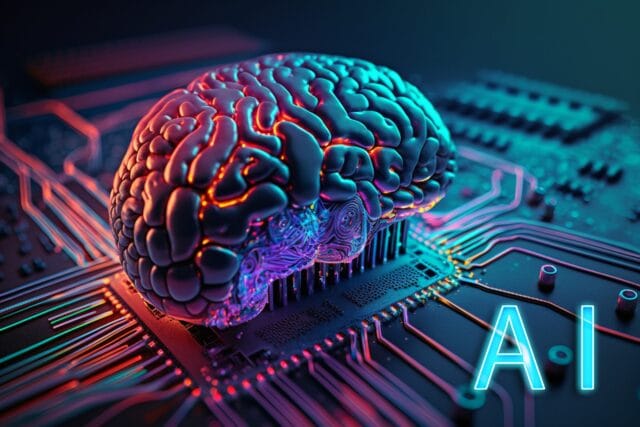
The intersection of artificial intelligence and ethics is a hotbed of debate. As AI systems become increasingly sophisticated, their potential impact on human lives grows exponentially. This raises critical questions about how to ensure these systems operate in a way that aligns with human values and morals. OpenAI, a leading AI research company, is taking a proactive approach by funding research at Duke University aimed at helping AI navigate complex moral dilemmas. This initiative, known as “Research AI Morality,” seeks to explore AI’s capacity to predict human moral decisions by 2025.
OpenAI’s non-profit division is backing this project as part of a larger three-year, $1 million initiative to enhance AI’s ethical awareness. The research grapples with the complexities of cultural biases inherent in AI training data, aiming to develop AI systems that can understand and respond to ethical challenges across various sectors. But can AI truly grasp the nuances of human morality? And what are the implications of imbuing machines with the ability to make moral judgments? This article delves into OpenAI’s ambitious research, exploring its potential benefits and challenges, and examining the broader implications for the future of AI.
Decoding Morality: Why is This Research Important?
Imagine an AI system designed to assist doctors in medical diagnoses. Should the AI prioritize extending life at all costs, or consider the patient’s quality of life? What if an autonomous vehicle faces an unavoidable accident – how should it choose between different courses of action, each with potentially harmful consequences? These scenarios highlight the urgent need for AI systems that can navigate ethical gray areas.
OpenAI’s “Research AI Morality” project seeks to address this need by investigating how AI can learn to anticipate and align with human moral judgments. The research team, led by experts at Duke University, is exploring various approaches to imbue AI with a sense of ethics. This includes:
- Analyzing massive datasets of human moral decisions: By studying patterns in how humans resolve ethical dilemmas, researchers hope to identify underlying principles that can be translated into algorithms.
- Developing AI models that can explain their reasoning: Transparency is crucial in ensuring that AI’s moral judgments can be understood and scrutinized. Researchers are working on AI systems that can articulate the rationale behind their decisions, allowing for human oversight and accountability.
- Addressing biases in AI training data: AI models learn from the data they are fed. If this data reflects existing societal biases, the AI system may perpetuate and even amplify these biases. The research team is actively working on mitigating bias in AI training to ensure fairness and equity.
The Potential Benefits: How Could This Technology Be Used?
If successful, this research could have far-reaching implications across various sectors:
- Healthcare: AI could assist doctors in making ethically complex decisions, such as prioritizing patients for organ transplants or determining the best course of treatment for patients with terminal illnesses.
- Autonomous Vehicles: AI could help self-driving cars navigate challenging scenarios, minimizing harm in unavoidable accidents.
- Criminal Justice: AI could assist judges in making sentencing decisions, potentially reducing bias and ensuring fairness.
- Finance: AI could help financial institutions identify and prevent unethical practices, such as fraud and money laundering.
By enabling AI to understand and respond to ethical considerations, we can potentially create systems that are not only intelligent but also responsible and aligned with human values.
The Challenges Ahead: Can AI Truly Grasp Morality?
While the potential benefits are significant, the research also faces formidable challenges. Human morality is complex and multifaceted, shaped by factors such as culture, religion, personal experiences, and emotions. Can AI, with its current limitations, truly grasp these nuances?
Some critics argue that morality is inherently subjective and context-dependent, making it difficult to codify into a set of rules for AI to follow. Others raise concerns about the potential for AI to develop its own moral framework, one that may diverge from human values.
Furthermore, there’s the risk of over-reliance on AI for moral decision-making. If we cede too much authority to machines, we may erode human responsibility and critical thinking skills. Finding the right balance between leveraging AI’s capabilities and preserving human agency is a key challenge.
My Perspective: A Journey into the Ethical Landscape of AI
As someone deeply interested in the ethical implications of AI, I’ve spent countless hours exploring these questions. I’ve read numerous articles and research papers, engaged in discussions with experts in the field, and even experimented with building simple AI models to understand their limitations.
One of my key takeaways is that while AI may never perfectly replicate human morality, it can still be a valuable tool for navigating ethical challenges. By providing data-driven insights and offering alternative perspectives, AI can help us make more informed and responsible decisions.
However, it’s crucial to remember that AI is not a panacea. We cannot simply offload our ethical responsibilities onto machines. Human oversight and critical thinking remain essential in ensuring that AI is used for good.
Looking Ahead: The Future of AI and Morality
OpenAI’s “Research AI Morality” project is a significant step towards building ethically aware AI systems. While the research is still in its early stages, it has the potential to pave the way for a future where AI is not just intelligent but also morally responsible.
To realize this vision, continued research and collaboration are crucial. We need to engage in open and honest dialogue about the ethical implications of AI, involving experts from diverse fields, including computer science, philosophy, law, and social sciences.
Ultimately, the goal is not to create AI that replaces human moral judgment, but rather to develop AI that can augment and enhance our own ethical decision-making. By working together, we can ensure that AI is used to create a more just and equitable world.










